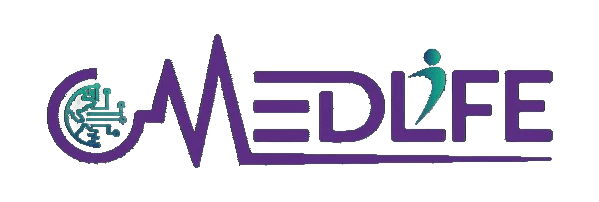Running a successful psychiatry practice involves more than providing exceptional patient care. Effective medical billing and collection processes are crucial for maintaining financial stability and ensuring your practice can continue serving patients who need mental health services. However, psychiatry billing presents unique challenges that require specialized strategies and attention to detail.
From navigating complex insurance requirements to managing patient confidentiality concerns, psychiatry practices face distinct hurdles in their billing and collection efforts. Understanding these challenges and implementing proven solutions can significantly improve your practice’s revenue cycle and overall financial health.
Understanding the Unique Challenges of Psychiatry Billing
Psychiatry medical billing differs significantly from other medical specialties in several important ways. Mental health services often face more stringent insurance requirements, including prior authorizations and detailed documentation standards. Many insurance plans have separate mental health benefits with different deductibles, copayments, and coverage limitations that can complicate the billing process.
Patient confidentiality presents another layer of complexity. HIPAA requirements are particularly sensitive in mental health settings, affecting how billing information can be communicated with patients and their families. This often requires more careful handling of billing inquiries and collection activities.
Additionally, psychiatry practices frequently deal with patients experiencing financial hardship or those who may be reluctant to use insurance due to stigma concerns. These factors can impact collection rates and require more nuanced approaches to patient financial counseling and payment arrangements.
Need Help with Psychiatry Billing?
Schedule a free consultation to streamline your billing process and reduce claim denials.
TALK TO AN EXPERTStreamlining Your Billing Process
The foundation of effective psychiatry billing starts with accurate and complete documentation. Ensure your clinical staff understands the specific documentation requirements for mental health services, including proper use of psychiatric diagnostic codes and treatment modifiers. Regular training on coding updates and documentation best practices helps prevent claim denials and delays.
Implementing a robust practice management system designed for mental health practices can dramatically improve billing efficiency. These systems often include features specifically tailored to psychiatry billing, such as automated prior authorization tracking, mental health-specific reporting, and integrated patient portal capabilities that protect sensitive information.
Establish clear protocols for insurance verification before each appointment. Mental health benefits can change frequently, and verifying coverage, copayments, and deductible status helps prevent surprises for both patients and your practice. This upfront verification also allows you to collect appropriate copayments and discuss payment expectations before services are rendered.
Optimizing Insurance Claims Management
Successful claims management in psychiatry requires attention to several key areas. First, ensure you’re using the most current and specific diagnostic codes available. Mental health billing has become increasingly detailed, and using precise codes can improve reimbursement rates and reduce claim denials.
Submit claims promptly and consistently. Many psychiatric services have shorter filing deadlines than other medical services, making timely submission critical. Implement systems to track claim submission dates and follow up on unpaid claims within established timeframes.
Develop relationships with key insurance representatives who handle mental health claims. These contacts can provide valuable guidance on specific plan requirements and help resolve claim issues more quickly. Understanding each payer’s unique requirements for prior authorizations, treatment plans, and progress notes can significantly improve your approval rates.
Monitor your claim denial patterns closely. Track the most common denial reasons and implement targeted solutions. Common psychiatry billing denials often relate to insufficient documentation, incorrect modifier usage, or failure to meet prior authorization requirements. Regular analysis of denial trends helps identify areas for improvement.
Enhancing Patient Financial Communication
Clear communication about financial responsibilities is essential in psychiatry practices. Many patients are unfamiliar with mental health benefits and may not understand their coverage limitations. Provide written information about common insurance scenarios and typical out-of-pocket costs during the intake process.
Train your front desk staff to discuss financial matters sensitively and confidentially. They should be able to explain insurance benefits, payment options, and collection policies without compromising patient privacy or creating additional stress for patients already dealing with mental health challenges.
Consider implementing patient financial counseling as a standard part of your intake process. This counseling should cover insurance benefits, payment expectations, and available payment plans or financial assistance programs. Early financial conversations help prevent misunderstandings and improve collection rates.
Offer multiple payment options to accommodate different patient preferences and financial situations. This might include online payment portals, automatic payment plans, credit card processing, and extended payment arrangements for patients experiencing financial difficulties.
Implementing Effective Collection Strategies
Develop collection policies that balance financial needs with the sensitive nature of mental health treatment. Your collection approach should be professional and compassionate while maintaining firm boundaries about payment expectations.
Establish clear payment policies and communicate them consistently. Patients should understand payment expectations, late payment consequences, and available assistance programs before beginning treatment. Having written policies helps ensure consistent application and reduces staff confusion about collection procedures.
Consider outsourcing collections to agencies experienced with medical debt and HIPAA compliance. Mental health collections require special sensitivity, and specialized collection agencies understand the unique considerations involved in collecting psychiatric service debts.
Implement early intervention strategies for overdue accounts. Contact patients promptly when payments are late, offering payment plan options before accounts become severely delinquent. Early intervention often results in better collection outcomes and maintains positive patient relationships.
Leveraging Technology for Better Outcomes
Modern practice management systems offer numerous features that can improve psychiatry billing efficiency. Electronic health records (EHR) systems designed for mental health practices often include built-in billing capabilities that ensure proper coding and documentation alignment.
Automated patient portal systems can improve collection rates by making it easier for patients to view and pay bills online. These systems should maintain appropriate privacy protections while providing convenient payment options.
Consider implementing automated appointment reminders that include payment reminders for patients with outstanding balances. This gentle approach often prompts payment without requiring direct collection calls.
Use analytics tools to monitor key performance indicators such as collection rates, days in accounts receivable, and denial rates. Regular monitoring helps identify trends and opportunities for improvement before they become significant problems.
Is Your Psychiatry Billing System Working for You?
Get a free consultation to discover ways to optimize your billing and improve cash flow.
TALK TO AN EXPERTMeasuring Success and Continuous Improvement
Establish key performance indicators (KPIs) to measure your billing and collection success. Important metrics include clean claim rates, days in accounts receivable, collection percentages, and patient satisfaction scores related to billing processes.
Conduct regular reviews of your billing processes and outcomes. Monthly financial meetings should include discussion of billing performance, identification of problem areas, and development of improvement strategies.
Seek feedback from patients about their billing experience. Understanding patient perspectives on your billing and collection processes can reveal opportunities for improvement and help maintain positive relationships while collecting payments effectively.
Partner with Medlife for Optimized Billing
Medlife’s comprehensive services include claims management, denial resolution, patient financial counseling, and customized reporting that provides insights into your practice’s financial performance. Our HIPAA-compliant systems protect patient confidentiality while streamlining your revenue cycle processes. Contact us today to learn how our specialized services can improve your practice’s financial health and operational efficiency.


